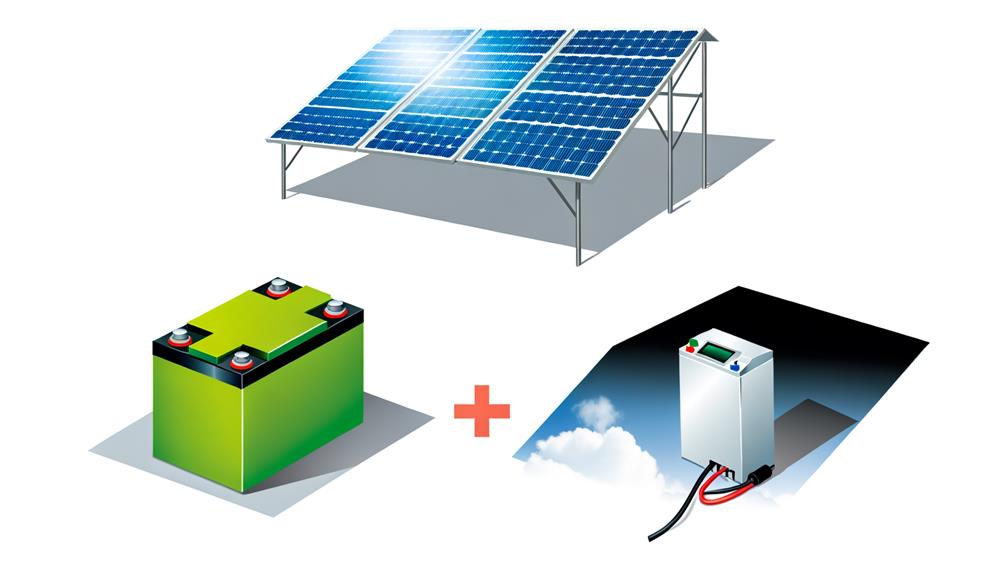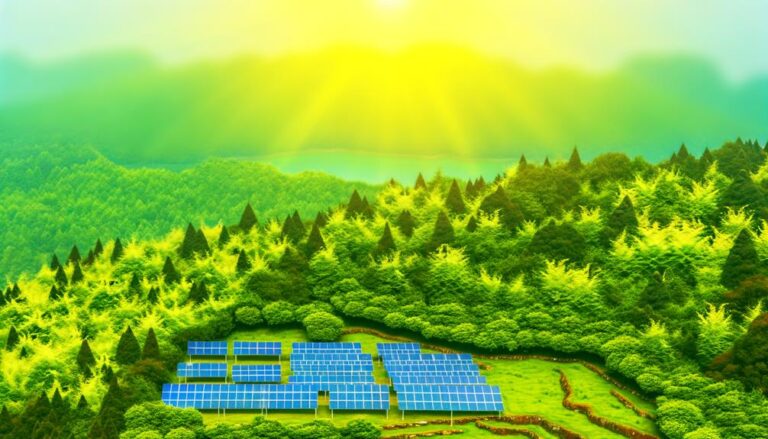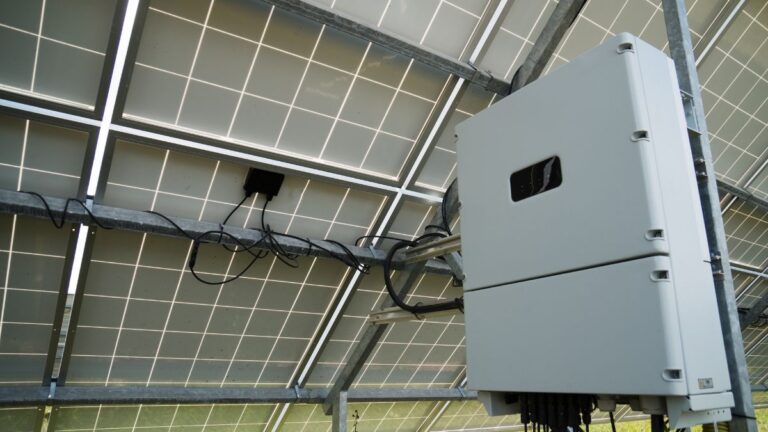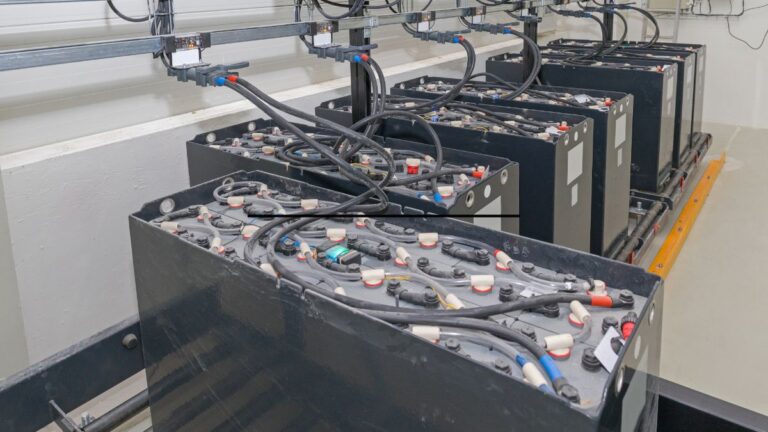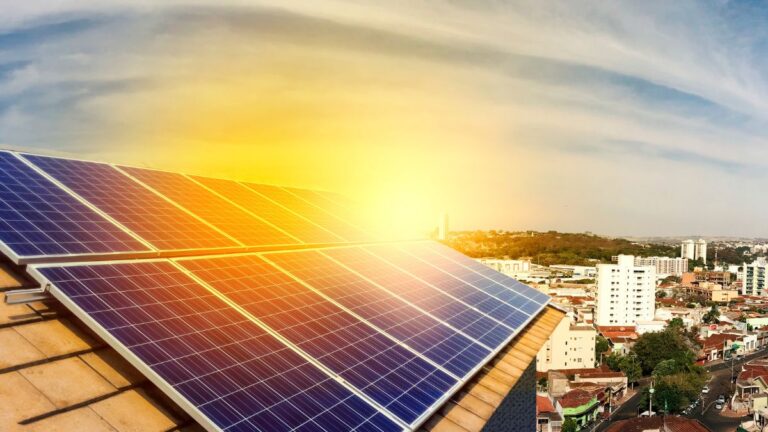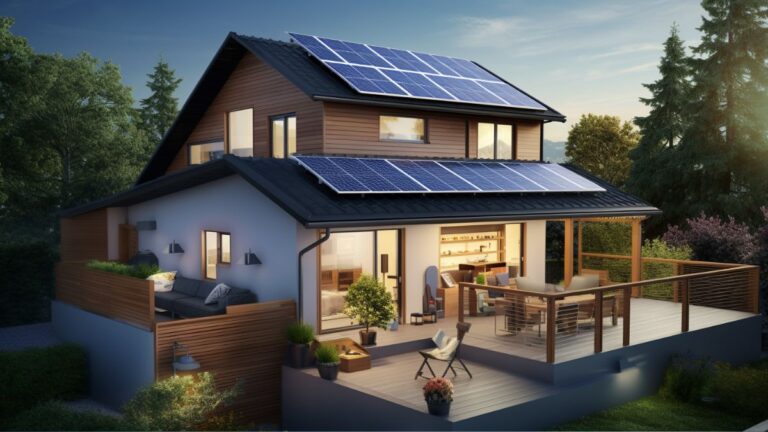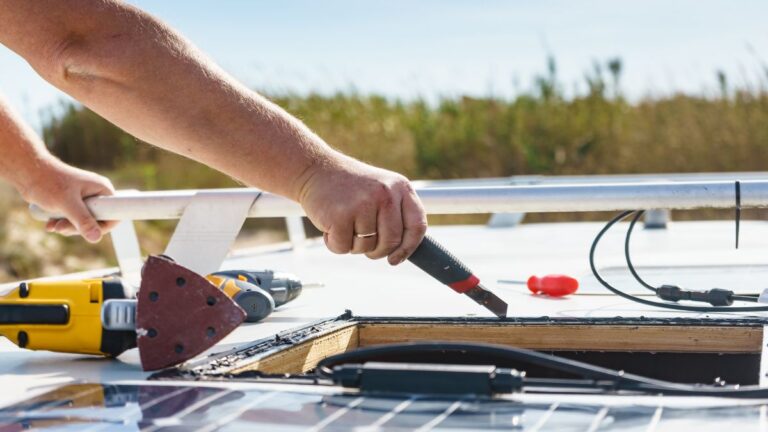What Issues Can Affect Off Grid Solar Systems?
Imagine you’re embarking on a journey to harness the power of the sun, relying on off-grid solar systems to guide you through uncharted territories of energy independence. But as with any adventure, challenges lie ahead.
The path may be illuminated, but what issues can affect these solar systems? How does weather play a role in their performance? What about the lifespan of batteries? And what maintenance and troubleshooting might be required along the way?
Step into the world of off-grid solar systems, where answers to these questions await, inviting you to uncover the intricacies that lie beneath the surface.
Key Takeaways
- Cloudy days and extreme weather events can reduce energy availability and damage off-grid solar systems
- Regular maintenance and monitoring are essential for optimal battery performance and lifespan
- Inverter issues, such as overloading and malfunctions, can decrease system efficiency and reliability
- Proper maintenance and cleaning of solar panels is crucial to prevent debris accumulation and ensure optimal energy output
Weather-Related Challenges
Weather-related challenges can significantly impact the efficiency and durability of off-grid solar systems. When relying on solar energy, the performance of your solar panels is directly affected by weather conditions. Cloudy days can reduce energy availability, leading to decreased power generation.
Extreme weather events, such as storms or heavy snow, can also have a detrimental effect on your system. It’s crucial to securely anchor your solar panels and protect connections to prevent damage during strong winds or storms. In snowy regions, angled installations can promote easy snow slide-off, ensuring continued energy generation.
Harsh weather conditions may require additional protection and maintenance to mitigate potential damage to your off-grid solar system. By being aware of these weather-related challenges and taking necessary precautions, you can maximize the efficiency and durability of your renewable energy system while reducing your dependence on the grid and rising energy prices.
Battery Performance and Lifespan
Battery performance and lifespan play a crucial role in the effectiveness and long-term sustainability of off-grid solar systems. The batteries in off-grid solar systems are responsible for storing the electricity generated by the solar components, providing a backup power source when the sun isn’t shining.
It’s important to ensure that the batteries are performing optimally to maximize the system’s efficiency. Regular maintenance and monitoring of the batteries are essential to identify any issues that may affect their performance. Factors such as temperature, depth of discharge, and charging and discharging rates can significantly impact the lifespan of the batteries.
Investing in high-quality solar batteries can greatly improve the overall performance and longevity of the off-grid solar system, ensuring a reliable and sustainable source of electricity for your solar installation.
Inverter Issues
Inverter issues can significantly impact the efficiency and performance of off-grid solar systems. Here are some key points to consider regarding inverter issues in off-grid solar power systems:
- Overloading the inverter beyond its capacity can lead to system failures and reduced efficiency.
- Inverter malfunctions may result from electrical surges, overheating, or component degradation.
- Regular monitoring and maintenance of inverters are essential to ensure optimal system performance.
- Understanding inverter specifications and ensuring compatibility with the rest of the system is crucial for preventing inverter issues.
When it comes to off-grid solar systems, the inverter plays a critical role in converting the DC power generated by the solar panels into AC power that can be used for household needs. Any issues with the inverter can disrupt this conversion process, impacting the energy produced and the overall performance of the system.
Overloading the inverter beyond its capacity can lead to system failures and reduced efficiency. Inverter malfunctions may occur due to electrical surges, overheating, or component degradation. Therefore, regular monitoring and maintenance of inverters are essential to ensure optimal performance.
It’s also crucial to understand the inverter specifications and ensure compatibility with the rest of the system to prevent any potential issues.
Maintenance and Cleaning Requirements
To ensure optimal performance and longevity of your off-grid solar system, it’s crucial to properly maintain and clean the solar panels, the powerhouse of the system.
Solar panels are responsible for converting solar energy into electricity, which is then stored in the battery bank for later use.
Accumulated debris, such as dust, leaves, or bird droppings, can obstruct sunlight and decrease the energy output of the panels. Regularly checking and cleaning the panels is essential to ensure maximum energy production.
Use a soft brush and water to gently remove any dirt or debris from the surface of the panels. Avoid using harsh detergents or abrasive materials, as they can cause damage.
Troubleshooting Electrical Connections
Properly troubleshooting electrical connections is essential for maintaining optimal performance and safety in your off-grid solar system. When it comes to your solar energy system, ensuring that all electrical connections are secure and functioning properly is crucial. Here are some key steps to troubleshoot electrical connections in your off-grid solar power system:
- Regularly inspect all electrical connections to identify any loose or faulty connections.
- Use appropriate tools and equipment to make secure and reliable electrical connections.
- Tighten any loose connections to prevent system inefficiency and potential safety hazards.
- Seek professional assistance for troubleshooting electrical connections to prevent long-term issues.
Frequently Asked Questions
What Is the Drawback of Off-Grid Solar System?
The drawback of an off-grid solar system is the need for maintenance, limited energy storage, inconsistent power generation, a costly initial investment, reliance on weather conditions, difficulty in expanding capacity, potential for system failures, the need for backup power sources, lack of grid tied benefits, and challenges in finding experienced installers.
What Happens to Excess Power in an Off-Grid Solar System?
When there’s excess power in your off-grid solar system, it can be stored in batteries for later use. If batteries are fully charged, the excess power can be diverted to a backup generator or designated load.
What Happens to Solar Power When Batteries Are Full Off-Grid?
When your off-grid solar system’s batteries are full, optimal utilization of solar power is essential. Battery management, energy storage, load management, and voltage regulation are crucial for efficient solar panel performance. System maintenance ensures inverter functionality and backup power solutions.
What Is One of the Biggest Problems Associated With Solar Energy?
One of the biggest problems associated with solar energy is the limited power output. This can be due to factors such as weather dependence, solar panel efficiency, and battery storage limitations.
Conclusion
So, as you can see, off-grid solar systems come with their fair share of challenges.
From weather-related limitations to the need for careful energy management, maintaining and replacing batteries, and troubleshooting electrical connections, it requires a certain level of expertise and attention.
However, with proper maintenance and understanding of these issues, off-grid solar systems can still be a reliable and sustainable source of energy.
This allows you to enjoy the benefits of solar power in even the most remote locations.
